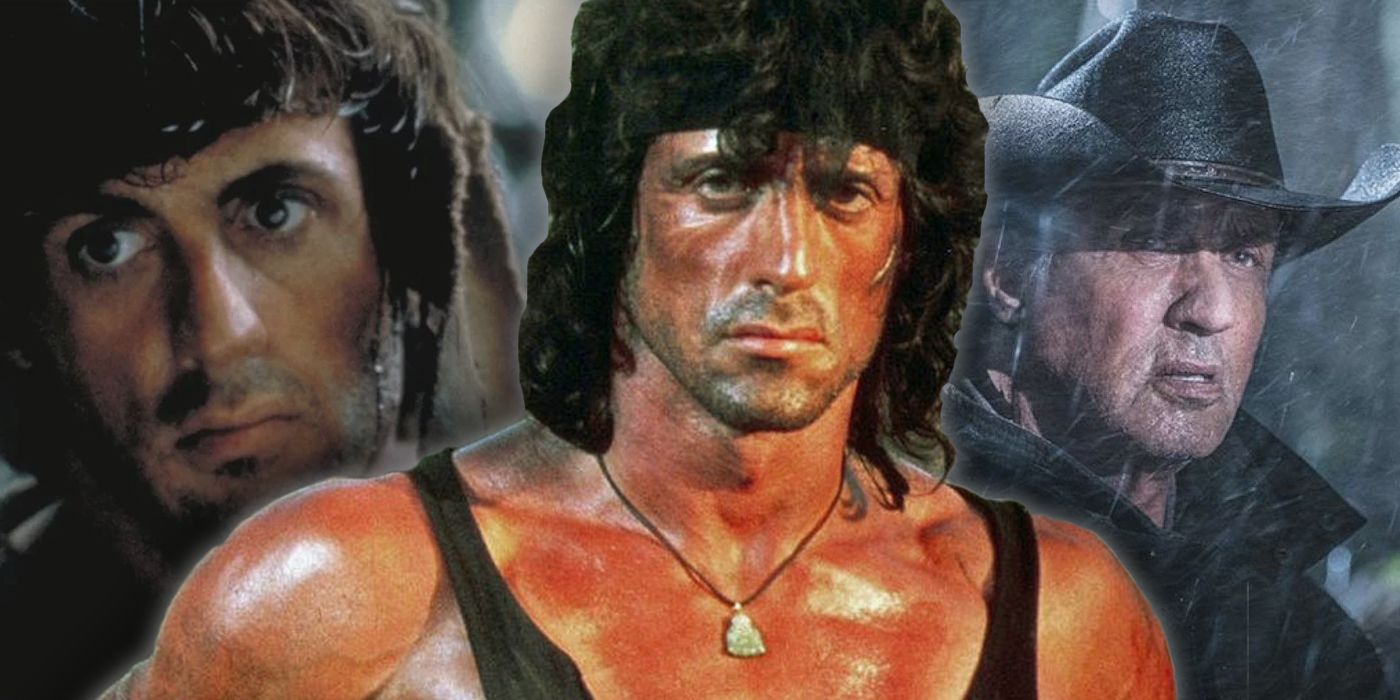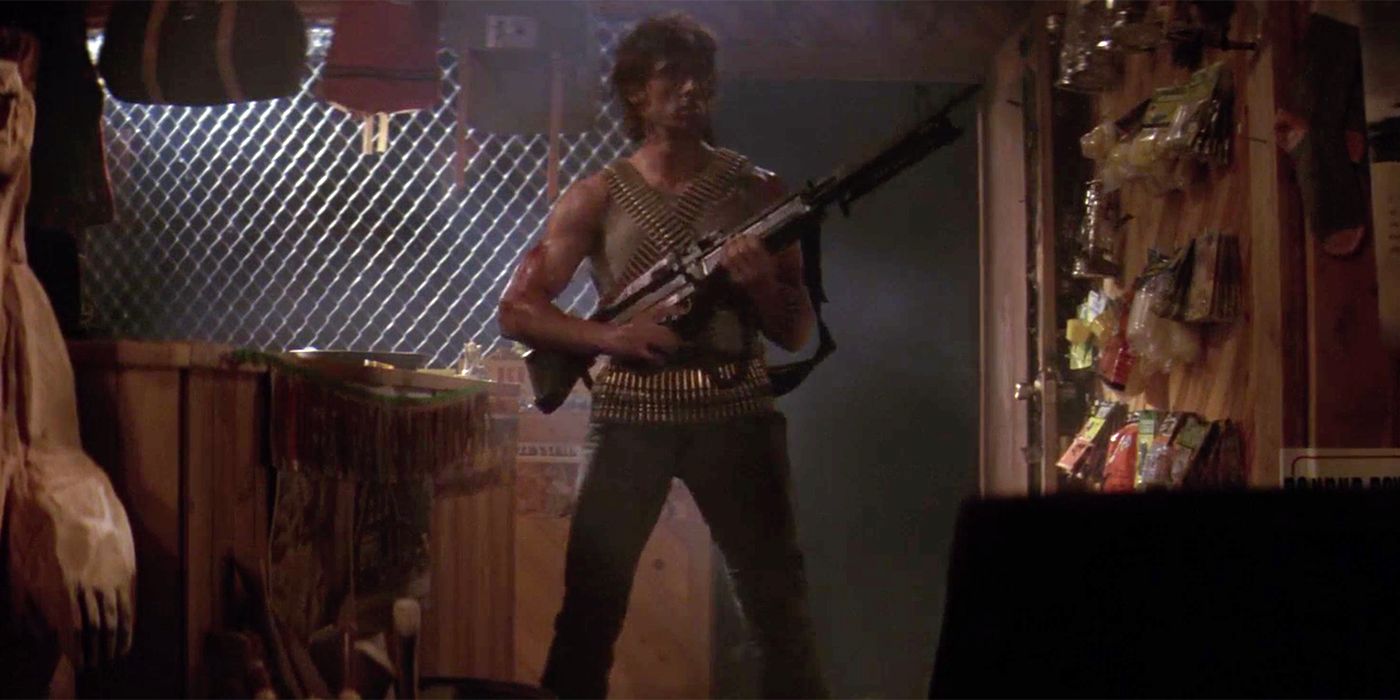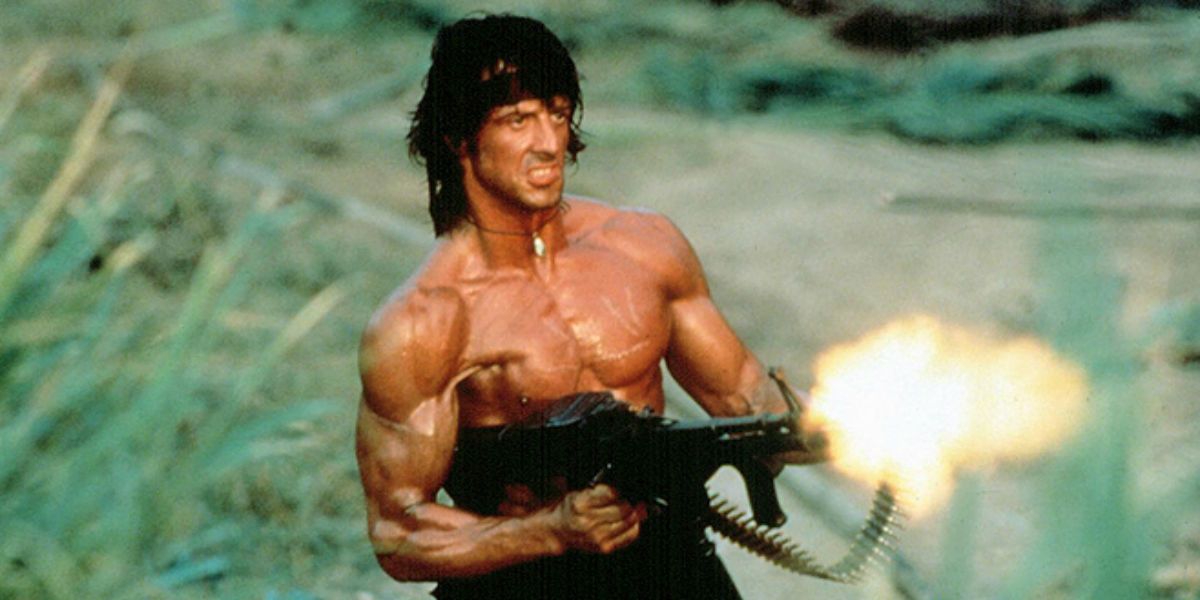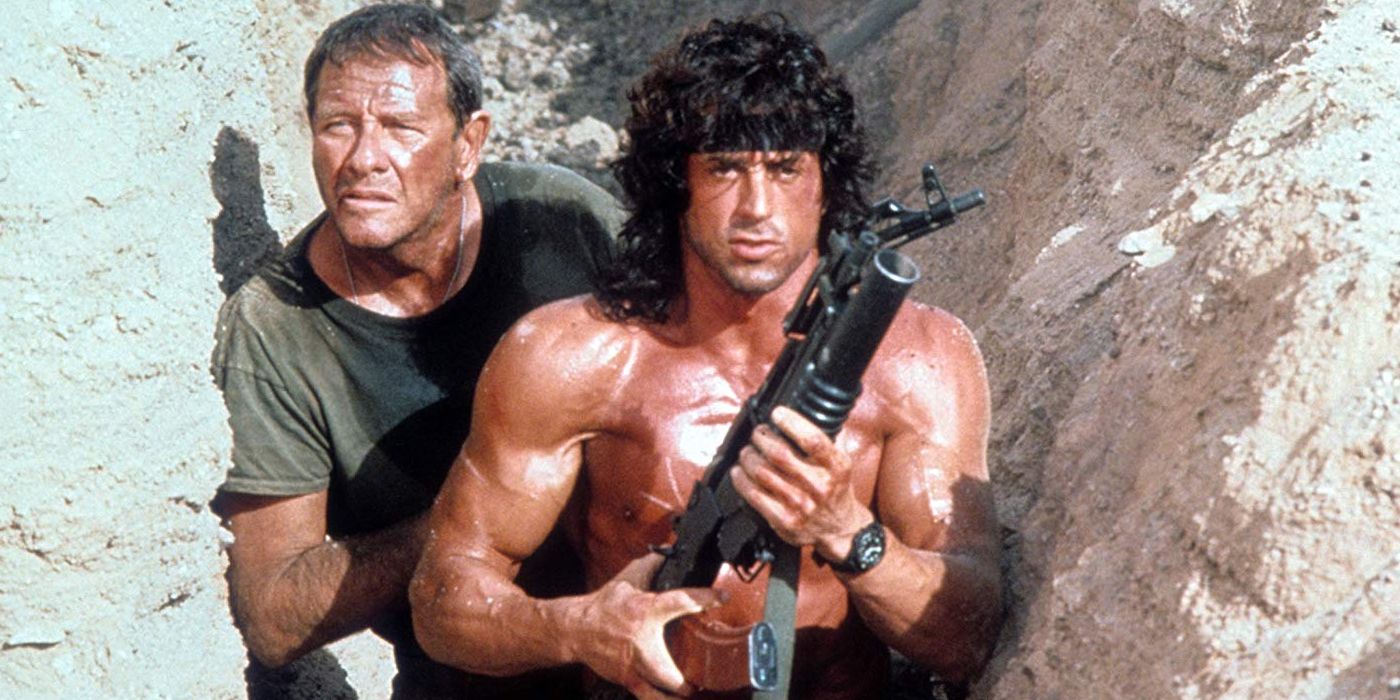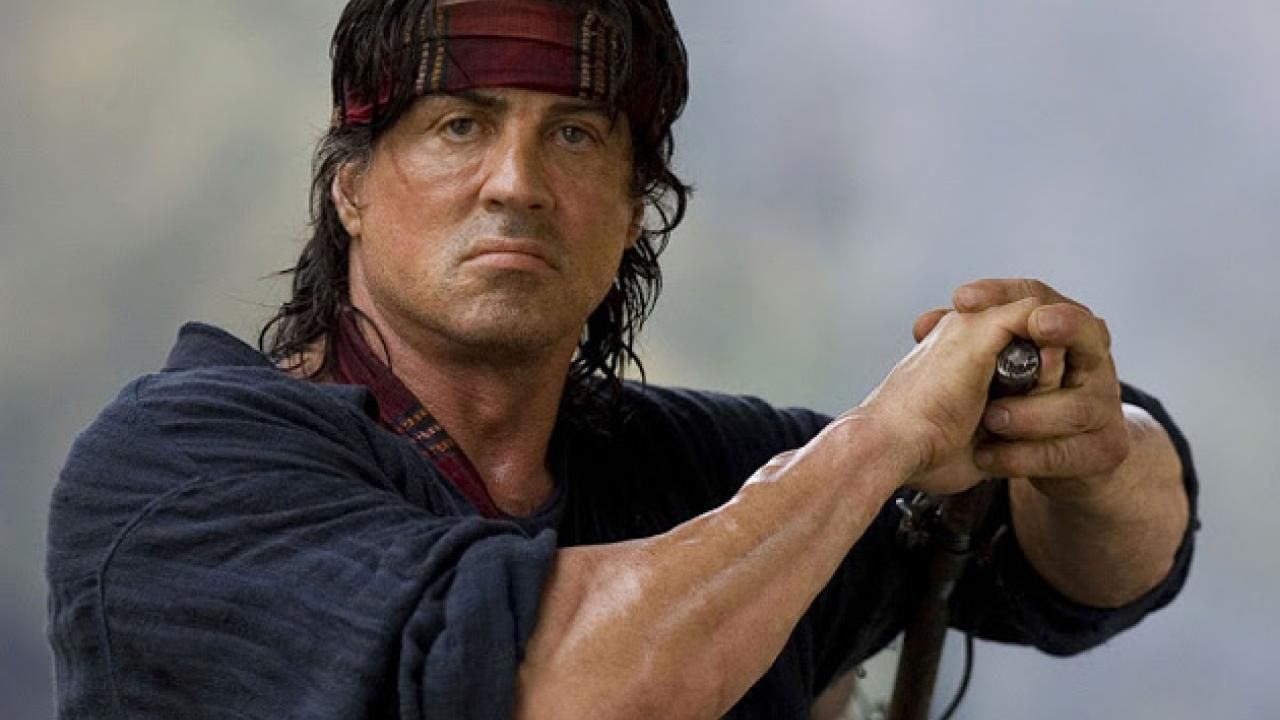Rambo: Last Blood, the fifth installment of the iconic action film franchise, is now open in theaters everywhere, bringing Sylvester Stallone's lethal hero back to the big screen after over a decade away. The character has gone on to embody the cinematic action hero trope, especially throughout the '80s.
Rambo symbolized All-American machismo at the movies during a time when the country was still struggling to regain its national confidence after the bitter, divisive Vietnam War. However, the character has changed considerably over his lengthy history to match the times, often in opposition to real-world conflicts raging around the globe.
While Rambo has always been cinematically portrayed as a tortured hero who overcomes inner demons to fight the battles no one else could, the original literary incarnation of the Green Beret and Vietnam War combat veteran was a decidedly sympathetic antagonist in the 1972 novel First Blood. Written by David Morrell, John Rambo wandered into a small Kentucky town after serving multiple tours in Vietnam where he spent time in Northern Vietnamese captivity.
Arrested for vagrancy and resisting arrest, Rambo's subsequent imprisonment in the town's jail reawakens his past trauma and, when forcibly shaved by a deputy with a straight razor, he snaps and kills the deputy before escaping into the wilderness. After killing police, National Guardsmen and civilians who cross his path, Rambo is eventually killed by his former commanding officer Colonel Sam Trautman after mortally wounding the town sheriff in a firefight.
FIRST BLOOD
A film adaptation of the thriller novel had been in various stages of development since 1974, with established actors, including Steve McQueen and Al Pacino, turning down the part while Kirk Douglas quit the role of Trautman deep into pre-production due to his concerns over the script not being faithful enough to the source material. Stallone, looking for success outside of his breakthrough Rocky franchise, signed on for the starring role under the agreement that he could rewrite the existing script based having penned the screenplays for the first two Rocky films, which earned him an Academy Award nomination for the original 1976 film.
Stallone portrayed Rambo as a much more sympathetic figure, antagonized incessantly by the town sheriff before his arrest while relocating the action to Washington state from the novel's primary setting of Kentucky. Instead, the cinematic adaptation of First Blood had Rambo inadvertently responsible for the death of a single, abusive deputy while employing less-lethal methods to turn the tables on his pursuers instead of indiscriminately harming anyone who crossed his path.
While an ending was filmed with Rambo forcing Trautman, recast with veteran character actor Richard Crenna, to kill him, a dissatisfied Stallone filmed a new ending that had Rambo finally break down emotionally from the mounting psychological trauma in an impassioned heart-to-heart with his friend and comrade-in-arms, resulting in his peaceful surrender to the authorities. Unsurprisingly, the ending with Rambo surviving the ordeal would be the one used for the theatrical release.
First Blood would go on to become one of the biggest box office hits of 1982, provide Stallone his first major success outside of Rocky, and earn the actor his greatest critical acclaim since the original Rocky film. The concept of returning Vietnam War veterans' treatment upon their return home and the post-traumatic stress disorder they endured overseas was still a sensitive, timely topic with contemporary audiences and was well-received by the general public. The studio commissioned a sequel, with Stallone and Crenna reprising their roles while Stallone co-wrote the film's script with up-and-coming filmmaker James Cameron.
FIRST BLOOD PART II
Just as the first film had explored the prevalent issue of veterans suffering from PTSD returning to an unfriendly home, the 1985 sequel Rambo: First Blood Part II would address the possibility of prisoners-of-war remaining captive in Vietnam, with the tacit assistance of the Soviet Union. The first Rambo film had been about coping with the raw, unresolved emotions coming out of Vietnam; its follow-up would have its eponymous veteran essentially relaunch and win the Vietnam War single-handedly in a little over an hour and a half; symbolically reclaiming America's lost dignity, if only cinematically.
While critically lambasted for its mindless action and confused social message, First Blood Part II earned well over twice as much at the box office as its predecessor, with President Ronald Reagan as a vocal fan of the film. Another sequel was commissioned, with Stallone deciding to retain the Soviet Union as the main antagonists even as the Cold War and the Soviet war in Afghanistan was in gradual decline.
RAMBO III
In 1988, Rambo III had the former Green Beret embark on one last unabashedly jingoistic adventure as he traveled to Afghanistan to assist the local populace against the technologically superior Soviets and rescue Trautman from his Russian captors.
While faring marginally better with critics than First Blood Part II and still a financial success, Rambo III would earn approximately half as much as the second film at the worldwide box office, signaling a decline in the overt action genre and audience interest in the waning Cold War. Following a poorly received fifth Rocky film in 1990, Stallone's career appeared to be in a steady downturn over much of the subsequent decade until revitalizing his critical and commercial standing in 2006's Rocky Balboa. Having reinvigorated his career by bringing the fictional Philadelphia boxer back to the big screen, Stallone sought to do the same with his other classic character John Rambo, green-lighting a sequel before the sixth Rocky film's release.
RAMBO
A fourth Rambo film had been in various stages of development for years, but Stallone's unwillingness to return to the franchise after facing diminishing returns with his recent action films stalled progress. Finding inspiration after hearing United Nations' reports regarding the ongoing conflict in Burma, Stallone co-wrote 2008's Rambo, depicting the semi-retired soldier rescuing missionaries kidnapped by the military. Marking Stallone's sole directorial outing in the franchise, the filmmaker approached the production with Rambo's hardened personality, making the violence more graphic and overall tone considerably grimmer to reflect the real-world subject matter.
While Stallone's performance and the climactic finale was praised, the film's elevated violence was derided as particularly unsavory, posting the lowest box office totals for the franchise to date. Stallone announced plans for a fifth film in 2009 that would see the character hunt a genetically-engineered creature -- not unlike Predator -- though this was shelved for The Expendables franchise and Creed.
With Rambo: Last Blood, Stallone has revisited the character using an original story idea for the fourth film that sawRambo battle human traffickers after a friend's daughter is kidnapped. Morrell's character has come a long way from the murderous, broken veteran openly attacking civilians and law enforcement. Now ubiquitous with the entire action genre, John Rambo is perhaps Sylvester Stallone's most iconic role. Through his era-defining performance as Rambo, Stallone has brought the character from misunderstood veteran to jingoistic soldier to an unflinchingly violent, tortured warrior.
Directed by Adrian Grunberg (Get the Gringo) from a script written by Sylvester Stallone and Matt Cirulnick (Absentia), Rambo: Last Blood stars Stallone, Paz Vega, Sergio Peris-Mencheta and Yvette Monreal..

